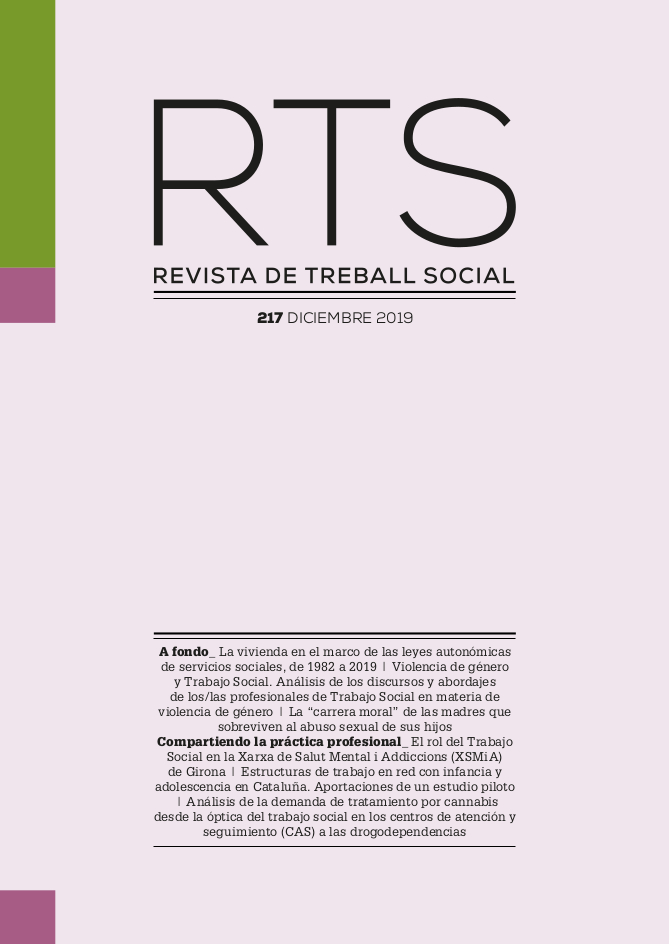The data obtained in relation to people calling for treatment for cannabis in specialised centres within the European context has increased dramatically in recent years. With the aim of examining this reality in depth, we have carried out an analysis from the perspective of social work expanding on social, personal and contextual components that would make it possible to offer a more insightful reading rather than simply addressing the merely quantitative aspects of the phenomenon.
In this respect, demands for treatment for cannabis in 2016 and 2017 have been explored, conducting a retrospective analysis of social work clinical records in order to determine the profiles, motivations, causes and socio-cultural factors that influence decision-making when seeking treatment for the use of cannabis.
It has been observed that in our service only 18% of all demands owing to cannabis are clear and specific for this substance. The rest are demands relating to coexisting situations giving rise to the call for care.
Within the context of the findings observed, this article aims to improve the understanding of the phenomenon, record demands for treatment and, at the same time, improve prevention and/or the therapeutic response to people who use cannabis.





